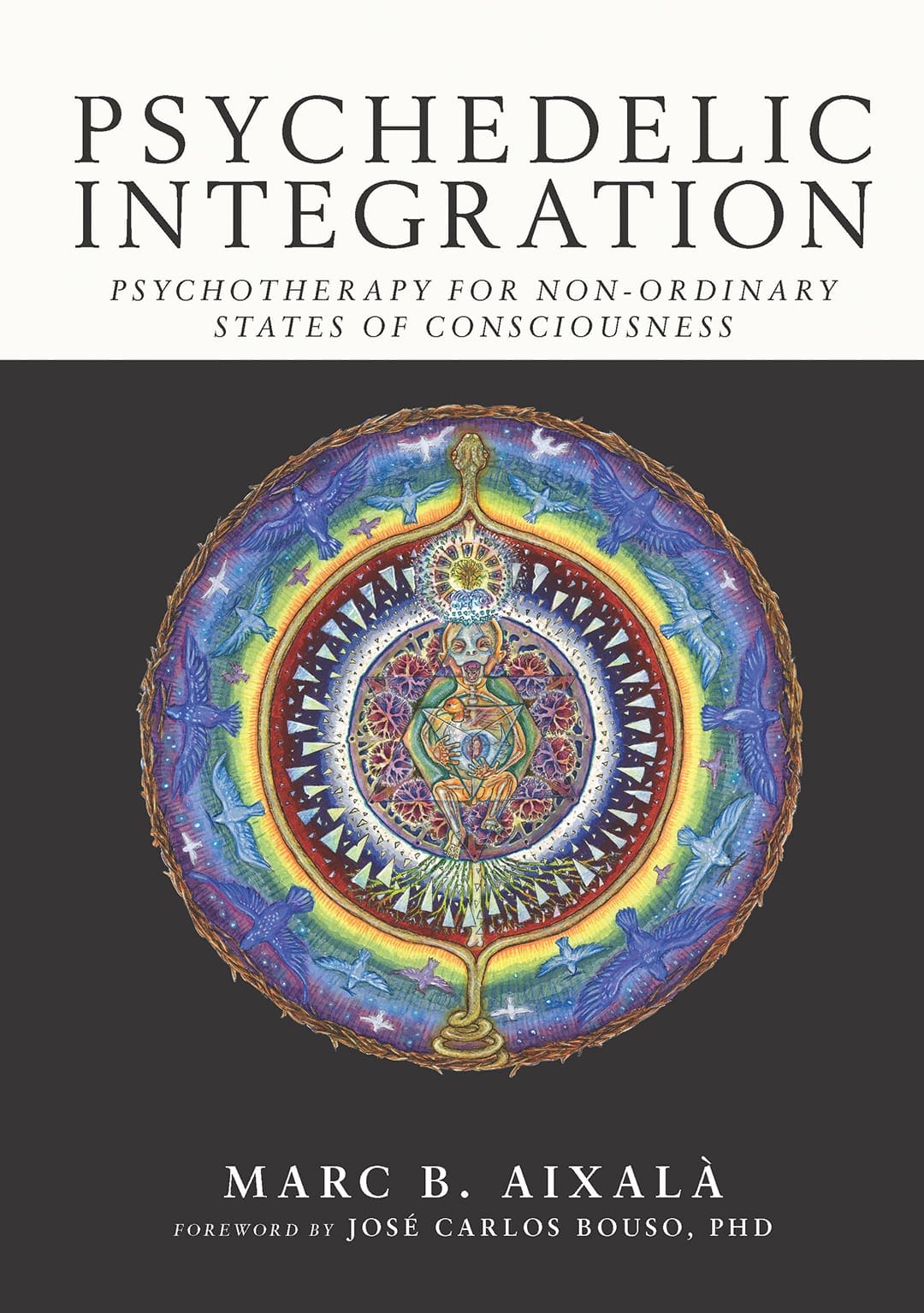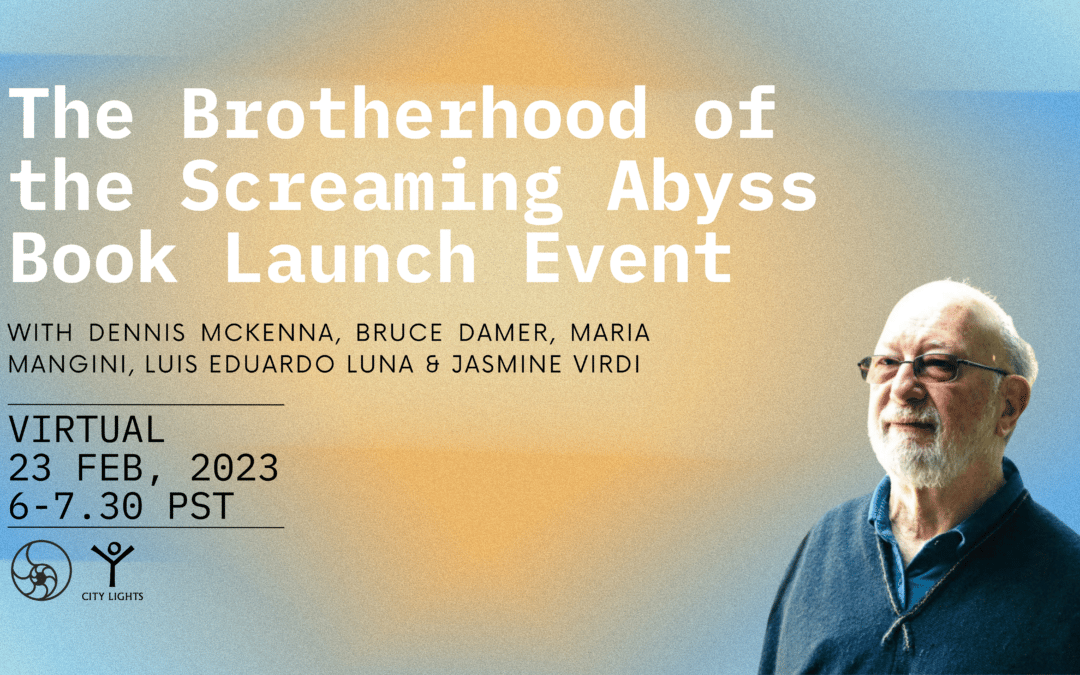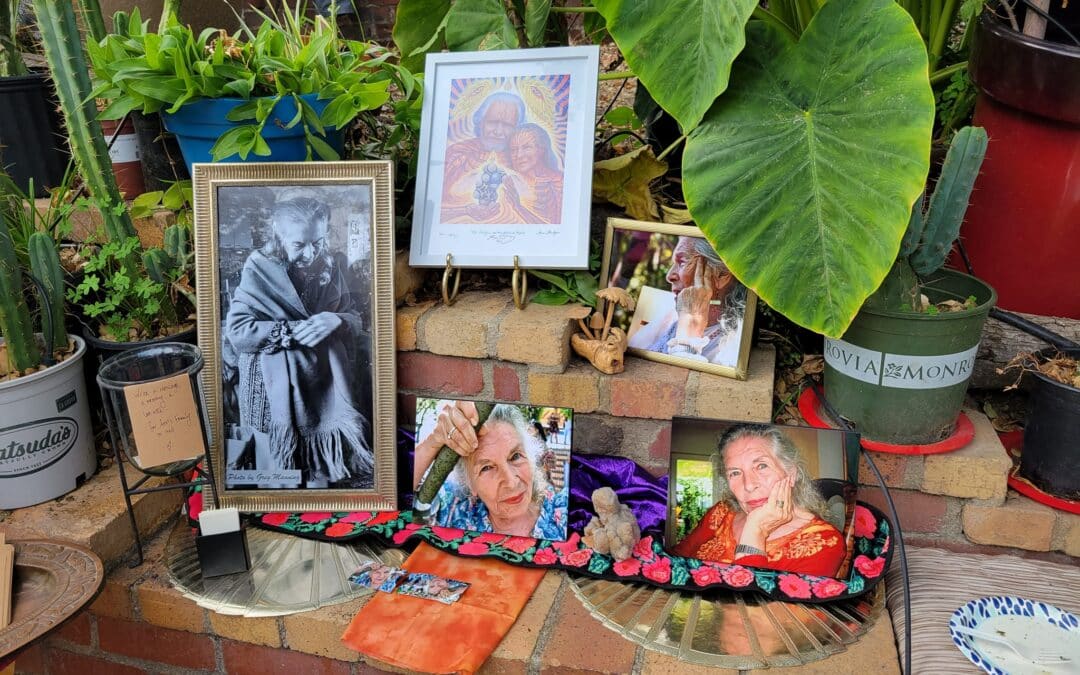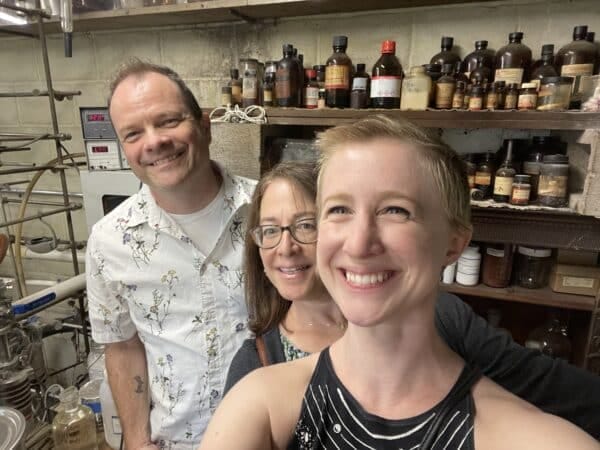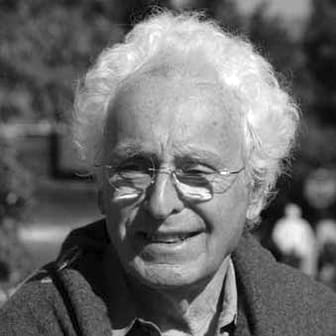
Jerry Mander: 1936-2023
An author, bon vivant, and impresario of activism whose career of sensational campaigns reads like a history of the modern progressive movement.
Jerry Mander’s life was a love letter to Life itself. No place better captured that spirit than 20th-century San Francisco, where Jerry made his home when he first stepped onto the SFO tarmac in 1960 and, upon filling his lungs with its sparkling air, knew that he wasn’t in Yonkers anymore. Little did he know that he was destined to become arguably the most important environmental and media activist of an era.
Jerry moved to San Francisco with perfect historical timing, just a heartbeat before The City’s counterculture consciousness would swell to a burst, sending waves of liberation ideology, cappuccinos, and rock-and-roll to all corners of the planet. Jerry rode those waves to shore, as a groundbreaking activist-adman, as a journalist and author of a dozen books, as a key founder of the anti-globalization movement and as a mordant critic of technology and capitalism, finally passing away on April 11, 2023 in Kukuihaele, Hawaii, after a long struggle with terminal illness.
Beginnings
As a graduate student at Columbia during the 1950s, Jerry had been impressed with the film societies thriving in New York at the time, where he discovered foreign and experimental films. Inspired, he opened San Francisco’s first—but short-lived—art cinema in the early 1960s, partnering with Ernest “Chick” Callenbach. Chick was then the editor of “Film Quarterly” and would later pen the seminal eco-novel Ecotopia in 1975.
He was soon working as a full-time publicist for a number of clients, including the then fledgling San Francisco International Film Festival and the modern-dance trailblazer Anna Halprin. Jerry toured Europe as Halprin’s manager and would later recall one certain performance in an Italian village that was so inaccessibly avant-garde (it involved unorthodox composer John Cage) that the angered audience, faithful to their national stereotype, actually pitched rotten tomatoes at the performers on stage!
One of Jerry’s first Bay Area abodes was in the flat above the famed City Lights Books in North Beach, which was “ground zero” for beatnik culture, still in its heyday. It was from this apartment that, in 1965, young Jerry witnessed stand-up comic Lenny Bruce make headlines by tumbling out of the second story window of the residence hotel across the street. A few blocks away, Jerry had helped launch the legendary improv group, The Committee, with Alan Meyerson and Latifah Taormina, both from the Chicago comedy group, Second City. It was a time when politics and art were inseparable, so The Committee regularly merged with civil rights and anti-war protests that included Joan Baez, Mimi Farina, Norman Mailer, and other creative luminaries.
This was where Jerry shined—using humor to help people to think in new ways. For example, after the Pentagon had announced a cynical idea to offer humanitarian support to Vietnam by airdropping toys over war orphans, The Committee was appalled. In response, Jerry wrote a daring full-page ad in the San Francisco Chronicle announcing a “War Toy of the Week” contest.
The ad’s wry sub-head read: Give now! Help American Efforts in Vietnam! You May Win $100! It described the comedy group’s efforts to collect as many war toys as possible, and actually airdrop them on the Pentagon! Within days, The Committee lobby was overflowing with a mountain of toys, slated to be dropped upon the Dept. of Defense. Even though the FBI ultimately put the kibosh on the plan, the campaign garnered so much publicity that the Pentagon canceled its insensitive toy airdrop over Vietnam.
The War Toy ad cemented the full-page political ad as a genre, and sealed Jerry’s reputation as a master tactician for this brand of movement-building.
In 1963, Jerry met his first wife, the noted feminist Anica Vesel Mander, in Big Sur at the voluptuous cliffside retreat, Nepenthe. They were married in 1965 and had two sons, Yari and Kai.
Gossage
In 1966, visionary advertising executive Howard Gossage enlisted Jerry to join his firm. Gossage, who had been known as “the Socrates of San Francisco,” mentored Jerry’s rising star. Together (in between selling cars and stereo systems), the two men generated one of the most successful ads in the history of the U.S. environmental movement to stop the U.S. government from building two giant dams inside the Grand Canyon. They had been hired by David Brower of the Sierra Club, who was horrified that the dams would have flooded the canyon to a depth of 800 feet, thus submerging 150 million years of geological history.
The Bureau of Reclamation was asserting that the public favored flooding the rivers in the Grand Canyon, ostensibly because small boats would then be able to float high up in the canyon, allowing visitors to touch its beautiful walls! The imposing headline of Jerry’s full-page ad, which ran in the New York Times, read: SHOULD WE ALSO FLOOD THE SISTINE CHAPEL, SO TOURISTS CAN GET NEARER THE CEILING? The ad was an instant sensation and ultimately defeated the project. The success transmuted the Sierra Club from a humble hiking club into an authoritative force for political change. In retrospect, it could be said that this trademark wit of zinger headlines was a prototype of today’s social media memes. This was one of several ways that Jerry was indirectly, yet intimately, involved with shaping 21st-century culture.
Historians agree that 1966 was the year that the bohemian beats gave way to the phantasmagorical hippies, and that the portal through which that metamorphosis took place was none other than the infamous, three-day “Trips Festival.” Jerry partnered with Stewart Brand, an associate of Ken Kesey and the Merry Pranksters, to promote the festival. Brand sought to package Prankster philosophy for the mainstream, promising an exploration of the inner self and possibilities for utopia, enhanced by music, audio-visual technology and psychedelics.
It was also a turning point for a young Bill Graham, whom Jerry had hired to pass out flyers. After the raving success of Trips, Graham asked Jerry to partner with him on a long-term lease for a place he was going to call The Fillmore Auditorium. The idea was to throw a series of Trips-inspired events. “Nope, not interested,” replied Jerry flatly. That left Graham on his own to pursue a career as the most celebrated concert promoter in rock history.
The “Ralph Nader of Advertising”
After Gossage’s premature death in 1969, Jerry soon opened his own agency, dedicated solely to advocacy advertising in the public interest. It was the first of its kind. Clients included Earth Island Institute, Planned Parenthood, Greenpeace, and others. The Wall Street Journal called him “the Ralph Nader of advertising.” Howard Gossage remained a source of inspiration for Jerry throughout his career.
It was during this period that Jerry teamed up with Stewart Brand again, and others, this time to create the iconic Whole Earth Catalog. The jumbo-sized compendium of tools, ideas, and culture was a sort of Farmer’s Almanac for the Age of Aquarius. John Markoff of The New York Times called it “the Internet before the Internet. It was the book of the future. It was a web in newsprint.” Jerry served on the Whole Earth Catalog board, helping to determine which environmental and social-justice causes would receive funding derived from catalog sales.
Jerry and Ani were then living in a Russian Hill flat when they met Doug and Susie Tompkins, who lived a few blocks away. When Doug opened a little ski shop down the hill in North Beach, Jerry hired the Grateful Dead to perform at the opening reception. The shop was called The North Face, and would later expand to global dimensions. Doug and Susie’s later business venture, Esprit clothing, would be equally profitable. Jerry and Doug remained close creative collaborators, through Doug’s eventual disavowal of capitalism and his transformation to a wildly effective land conservationist, all the way until his untimely death in 2015.
Jerry also served on the original board of directors of Patagonia, Inc., founded by Yvon Chouinard, an adventurer-buddy of Doug Tompkins. Due to Jerry’s efforts, Patagonia was one of the first companies to structure its operations to meaningfully include environmental and equity values. Malinda Pennoyer Chouinard, Yvon’s wife, recalls, “One memorable day, while the rest of us were at lunch, Jerry wrote Patagonia’s Value Structure, which we have followed as our bible for the last 30+ years… New hires are given his work at Yvon’s philosophy classes. Jerry was a National Treasure.”
Techno-skepticism
As mid-century counterculture morphed into late-century corporate culture, the 1960s visionaries fell into two camps: the few, like Jerry, who questioned technology’s golden promises, and the others, such as Stewart Brand, whom Jerry and Doug dubbed the “techno-utopians.” In fact, in an allusion to the powers of technology, the purpose statement of Stewart Brand’s Whole Earth Catalog opens: “We are as gods and might as well get good at it.” Jerry would rejoin: “Technology will not save us.”
Jerry’s two most influential books on the subject were Four Arguments for the Elimination of Television (1978) and In the Absence of the Sacred (1991).
Much of the conceptual framework of Four Arguments for the Elimination of Television emerged out of Jerry’s history with Marshall McLuhan, whose career as a thought leader had been launched by Jerry and Gossage. McLuhan’s signature statement, “The medium is the message,” informed Jerry’s thinking for life.
Mander’s scorn for technology was a lone voice during the heady genesis of the Bay Area tech industry. He maintained that the deceptive term “communications technology” was not at all about accommodating communications, but rather, about centralizing control. He was viewed at the time as nothing less than heretical.
Jerry’s pariah status was summed up perfectly at a lecture he gave in 1995, hosted by Stanford University. After having warned the packed auditorium that a culture based on computers would kill both the Earth and democracy, the audience became outraged (perhaps even more than the Italian villagers made to listen to John Cage). To utter such words was tantamount to telling them there was no God.
After Jerry’s lecture, the room of computer science nerds quickly jostled into a queue to roundly insult him for close to an hour. One after the other, they seemed to burst at the seams in rage, fists in the air, spraying epithets at him like buckshot: “You’re a dinosaur!” “You’ll be left in the dust!” “Go back under your rock, old man!” while Jerry, bemused, bespectacled and definitely blindsided by the onslaught, sat on stage with his arms clutched protectively around himself like a straitjacket.
Twenty-three years later, Jerry’s beliefs on the perils of technology have become generally accepted. Reformed techno-utopian Jaron Lanier paid homage to the wisdom of Four Arguments in Lanier’s 2018 book Ten Arguments for Deleting Your Social Media Accounts Right Now.
Jerry had often said that In the Absence of the Sacred was a continuation of his book on television. Like the first book, it is also part reportage, part anecdote, and part analysis. It elaborates further on how media shapes worldview and then goes on to examine how technology, in general, distances us more and more from Mother Earth.
He argues brilliantly, comparing solar energy to nuclear energy, demonstrating that technology is never value-neutral and that, actually, every technology has its own unique, intrinsic values. He details how there are inherent values to corporate structure as well, such as hierarchy and centralized control. Indigenous worldviews, by contrast, are based on genuine democratic values and reciprocity with the natural world. The book gives a fascinating summary of the significant influence that Iroquois governance had on the formation of the U.S. during the 18th century.
In 1982, Jerry met his second wife, the environmental artist Elizabeth Garsonnin. They married in 1987 and moved to Bolinas, a tiny hippie enclave north of the City by the Bay.
“Actors in our own history”
In the early 1990s, Jerry and a band of leading international thinkers and activists coined the term “economic globalization” to describe a certain phenomenon they saw taking form. Corporate dominance was running roughshod over the planet, accommodated by policy changes that were both accelerated and shaped by the new digital technologies. Activists took note that, no matter the problem, whether it be exploitation of sweatshop labor or Third World Debt or unregulated industrial pollution, the singular cause was consistently the same: the subjugation of people and Nature to corporate values.
Jerry and friends called themselves the “International Forum on Globalization,” or IFG. Representing over 60 organizations in 25 countries, board members and associates included, among others, Vandana Shiva, Ralph Nader, Edward Goldsmith, John Cavanagh, David Korten, Victoria Tauli-Corpuz, Andrew Kimbrell, and Walden Bello. Writing in The Nation, Naomi Klein called the IFG “the brain trust of the [anti-globalization] movement.”
Former co-chair of the IFG, John Cavanagh, reflects on Jerry’s role at the organization: “For many of us, what Jerry did, with his great ideas of teach-ins and books and beautifully laid out monographs, is that he created a stage where a number of us could become actors in our own history. Where we could take the stage as leaders, and push to deeper and smarter ideas and solutions. Where we could make an impact. This is his legacy.”
The IFG orchestrated a resilient international solidarity movement against economic globalization, targeting new types of institutions and agreements like the World Trade Organization (WTO) and the North American Free Trade Agreement (NAFTA) — the ultimate instruments of corporate global dominance. IFG generated a slew of reports, books, and all-star teach-ins in cities worldwide, including the infamous 1999 “Battle of Seattle,” where over 50,000 took to the streets to protest a major WTO Ministerial.
As the anti-globalization movement grew, tens of thousands would convene for protest at each ministerial location like Grateful Dead enthusiasts shadowing their favorite band. But unlike rock concerts, the teach-ins electrified audiences with people-centered alternatives to the seismic economic shifts taking place. IFG events were so insightful that they drew the interest of individuals as varied and high-profile as George Soros and Bernie Sanders. A muscular anti-corporate movement was afoot.
In coordination with the Battle of Seattle, Jerry authored The Turning Point Project, a series of 25 full-page ads that ran in The New York Times throughout 1999 on the perils of globalization. Examples of headlines included “Extinction Crisis,” “Globalization v. Nature,” and “If Computers in Schools are the Answer, Are We Asking the Right Question?”
With Edward Goldsmith, founder of The Ecologist journal, Jerry co-edited the classic critique, “The Case Against the Global Economy,” a collection of seminal essays from IFG board members. Later, in 2004, he co-edited with John Cavanagh a solution-oriented counterpart, “Alternatives to Economic Globalization: A Better World is Possible,” which presents solutions like “subsidiarity” and “living democracy.”
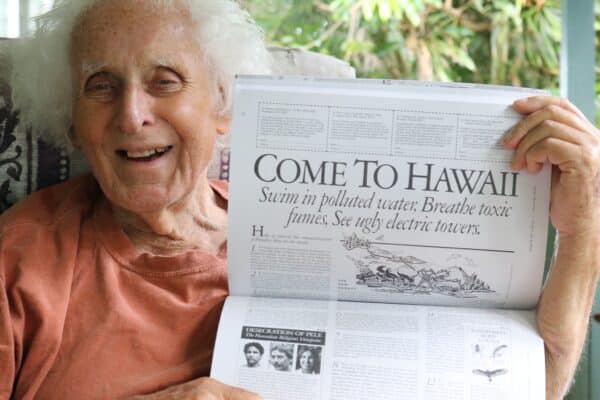
Jerry Mander holding up a copy of his latest book, 70 Ads to Save the World, sharing the Hawaii ad
Epilogue
Two decades later, all the IFG’s admonitions have come to pass. Globalized capital has run amok. U.S. jobs and manufacturing have effectively disappeared (with the exception of the multi-trillion dollar arms industry), as corporations have outsourced to Asia and elsewhere. Environmental, labor, and safety standards have dwindled, even as the world faces unprecedented catastrophes of climate, economic inequity, pandemics, and the Sixth Extinction. Authoritarianism has emerged in backlash, ratcheted up by new technologies.
Alas, this world—the world of Jerry’s sunset years—had fallen pitiably short of the morning promises of the Summer of Love.
Toward the end of his life, Jerry and his final wife, Koohan Paik-Mander, whom he met in 1995, spent their time divided between Bolinas, California, and Kukuihaele, Hawaii. Together, Jerry and Koohan, a filmmaker and Asia-Pacific policy analyst, co-authored The Superferry Chronicles: Hawai’i’s Uprising Against Militarism, Commercialism and the Desecration of the Earth (2009).
Jerry’s last book, 70 Ads to Save the World (2022), was named a 2023 finalist by the Independent Book Publishers Association for their Benjamin Franklin Award in the Political & Current Events category. 70 Ads features visually stunning, large-format reproductions of Jerry’s famous full-page newspaper ads, taking the reader on a sweeping, graphic tour of his storied life. Of Jerry’s time on this planet, the author Stephanie Mills observed, “The dear Earth could ask no more of anyone. It’s a noble life’s work.”
Jerold Irwin Mander* is survived by his wife, Koohan Paik-Mander; two sons, Yari and Kai; and three grandchildren Sadie, Ezra, and Eli.
*Jerry Mander’s parents, Harry and Eva Mander, were not aware of the pun they had created in bestowing upon their son a name that is homonymous with a term that means to manipulate the electoral boundaries of a political constituency.
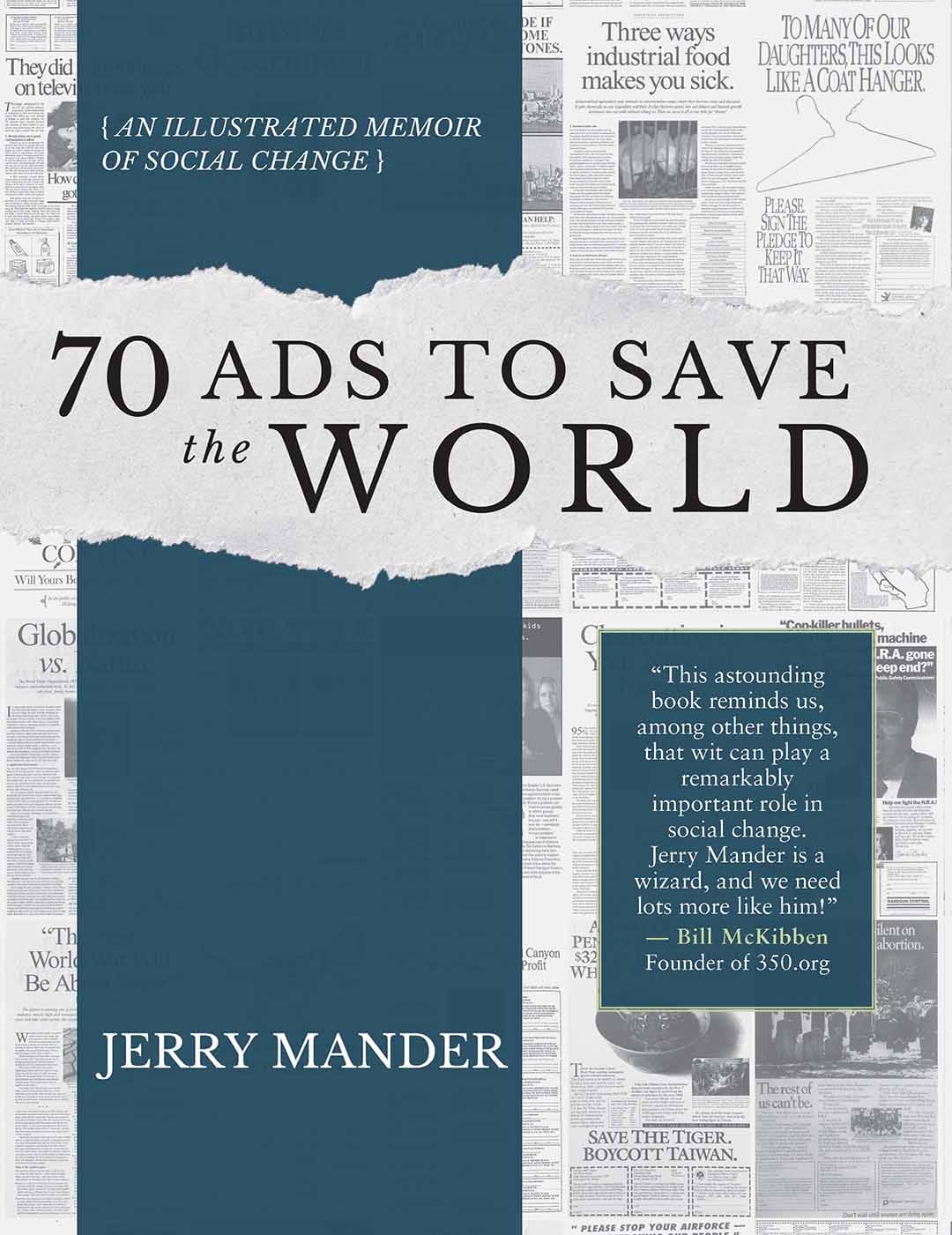
Chronicling his evolution from corporate advertising to non-profit and political advertising work, Mander takes readers on a journey through the origin stories of some of the most memorable anti-establishment campaigns from the second half of the 20th century. Many of Mander’s ads and campaigns for environmental and social justice issues were not only memorable decades ago, they remain relevant today.
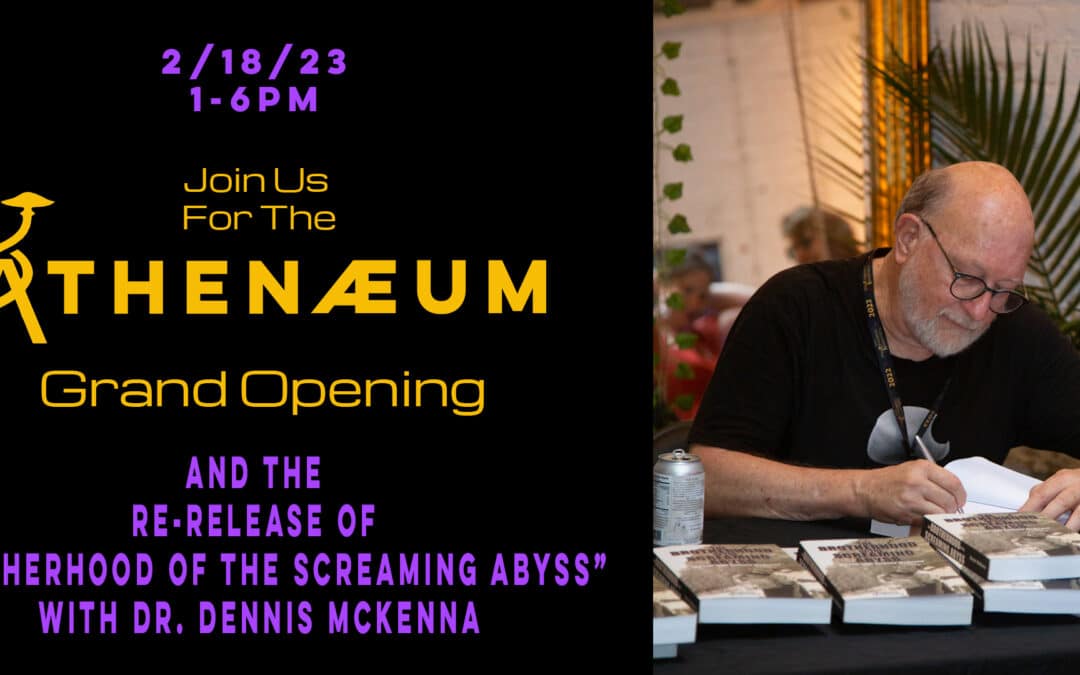
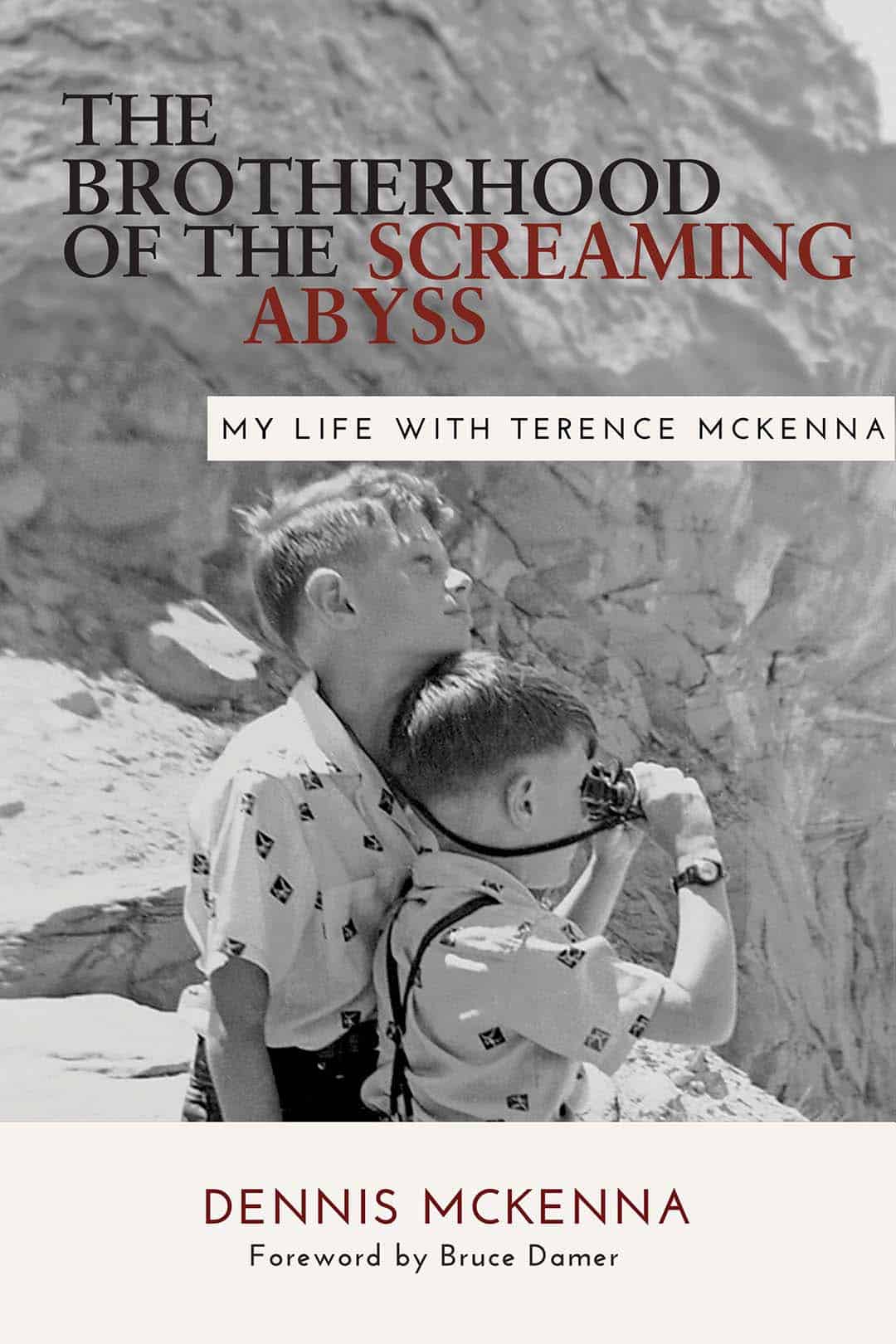
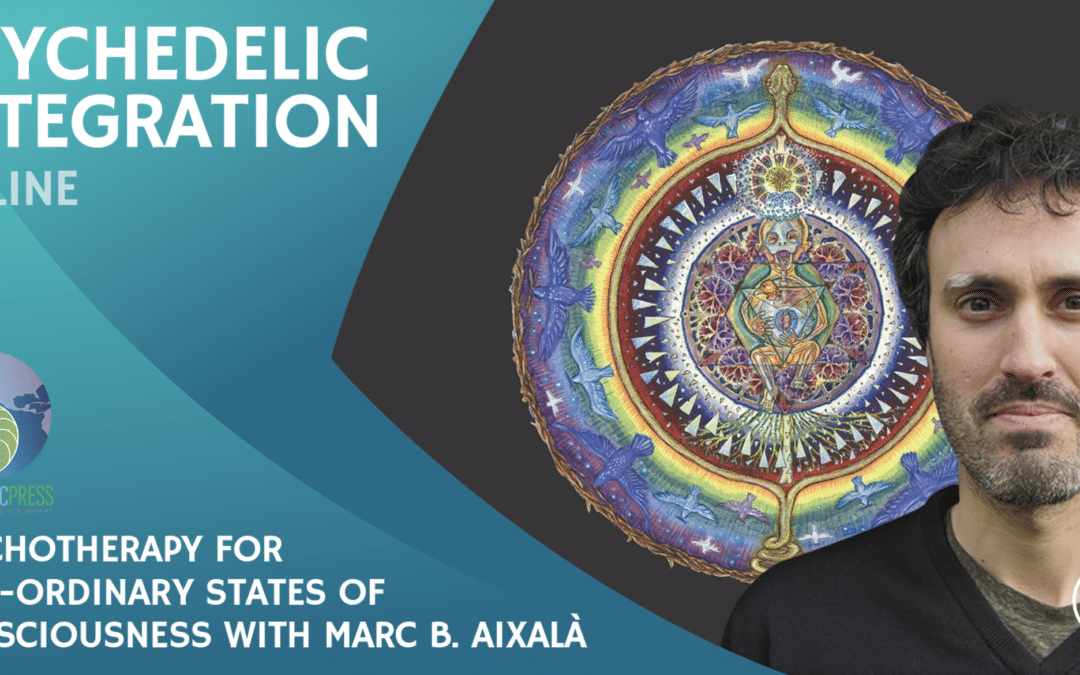
 ommunications engineer, psychologist, psychotherapist and certified Holotropic Breathwork facilitator specializing in supporting people who face challenging experiences with expanded states of consciousness. Since 2013, in collaboration with the International Center for Ethnobotanical Education, Research and Service (ICEERS), Aixalá has offered integration psychotherapy sessions for those seeking support after psychedelic experiences. At ICEERS, Aixalà also works to develop theoretical models of intervention and trains and supervises therapists.
ommunications engineer, psychologist, psychotherapist and certified Holotropic Breathwork facilitator specializing in supporting people who face challenging experiences with expanded states of consciousness. Since 2013, in collaboration with the International Center for Ethnobotanical Education, Research and Service (ICEERS), Aixalá has offered integration psychotherapy sessions for those seeking support after psychedelic experiences. At ICEERS, Aixalà also works to develop theoretical models of intervention and trains and supervises therapists.